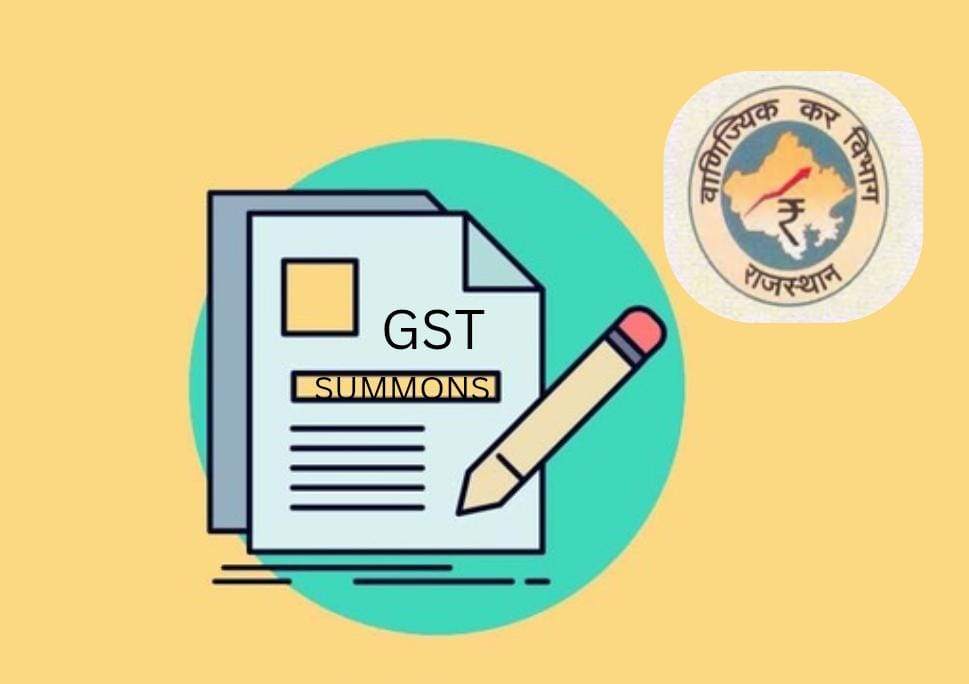
Rajasthan GST Department Clarifies Summoning Powers and Statewide Jurisdiction Guidelines
By Aaerm Law Associates | June 4, 2025
In a major move towards administrative clarity, the Rajasthan Goods and Services Tax (GST) Department issued a formal clarification under Section 168 of the RGST Act, 2017. This clarification concerns the delegation of summoning powers and the jurisdictional authority of State GST officers. The objective is to standardize enforcement and enhance legal certainty across all regions in the state.
🧾 Background of the Clarification
On May 16, 2025, the department released Circular F.17(228)ACCT/GST/2023. This document clarifies issues related to Entry No. 30 under Rajkaj Notification No. 13924982, dated March 3, 2025. Notably, that entry outlines which officers can exercise summoning powers under Section 70(1) of the RGST Act.
Until now, there was ambiguity regarding the geographic limits of those powers. Thus, the latest circular aims to remove any doubts and ensure consistent application of the law throughout Rajasthan.
📜 Delegation of Summoning Powers
The department has delegated the authority to summon individuals to the following officers:
- Additional Commissioner of State Tax
- Joint Commissioner of State Tax
- Deputy Commissioner of State Tax
- Assistant Commissioner of State Tax
These officials may now summon individuals to provide evidence, submit documents, or record statements during investigations under the RGST framework.
🌍 Jurisdictional Scope of Summoning Powers
The clarification also defines where and how these powers apply. Officers can summon individuals in the following ways:
- Within Assigned Jurisdictions
Officers may exercise summoning powers within their designated zone, circle, or ward. - Across the Entire State
With prior approval from the Chief Commissioner or Additional Commissioner, officers can extend their powers statewide. This includes the authority to summon individuals or businesses located outside Rajasthan, if necessary, to determine liability.
This expanded jurisdiction enables the department to tackle cross-border tax issues more effectively and ensure compliance, even in complex inter-state matters.
🧭 Key Implications for Taxpayers and Practitioners
This clarification brings several implications for various stakeholders:
✅ Wider Reach of Summons
Now, officials can summon not just local taxpayers but also out-of-state individuals who are relevant to a GST inquiry. This is especially important in cases involving interstate supply chains or contractual disputes.
✅ Stronger Enforcement
With clear authority and defined powers, enforcement officers can take swift and legally sound actions. This change supports a more agile tax administration system, capable of adapting to complex audit and investigation scenarios.
✅ Legal Accountability
Taxpayers and practitioners must take summons from these officers seriously. Failure to comply can lead to penalties under the Contempt of Court and Obstruction of Public Duty provisions.
⚖️ Legal Basis for the Clarification
Two key sections of the RGST Act form the legal foundation for this notification:
- Section 70(1): Allows a proper officer to summon individuals for evidence or inquiry.
- Section 168: Authorizes the Commissioner to issue instructions or directions for the uniform implementation of the Act.
This clarification adheres strictly to these legal provisions. It also replaces several earlier notifications, ensuring that all jurisdictions follow the same set of standards when summoning individuals or assessing tax liabilities.
🛡️ Ensuring Uniformity and Transparency
The GST framework relies heavily on uniform enforcement across all Indian states. Rajasthan’s clarification under Section 168 is a step in the right direction. By aligning officer powers and removing previous inconsistencies, the state creates a level playing field for both administration and compliance.
Moreover, this clarity ensures that businesses operating across multiple districts or states understand what to expect during a GST investigation or inquiry.
📌 Conclusion
The Rajasthan GST Department’s clarification marks a significant update for the state’s taxpayers and tax authorities. By officially delegating summoning powers and expanding jurisdictional authority—while requiring prior approvals for statewide application—it establishes a transparent and enforceable structure.
Taxpayers must stay informed and update their compliance strategies accordingly. Professionals advising clients should closely monitor future updates and align their practices with this clarified guidance.
This move reflects Rajasthan’s ongoing effort to build a robust and fair GST ecosystem, which supports both regulatory objectives and taxpayer rights.
